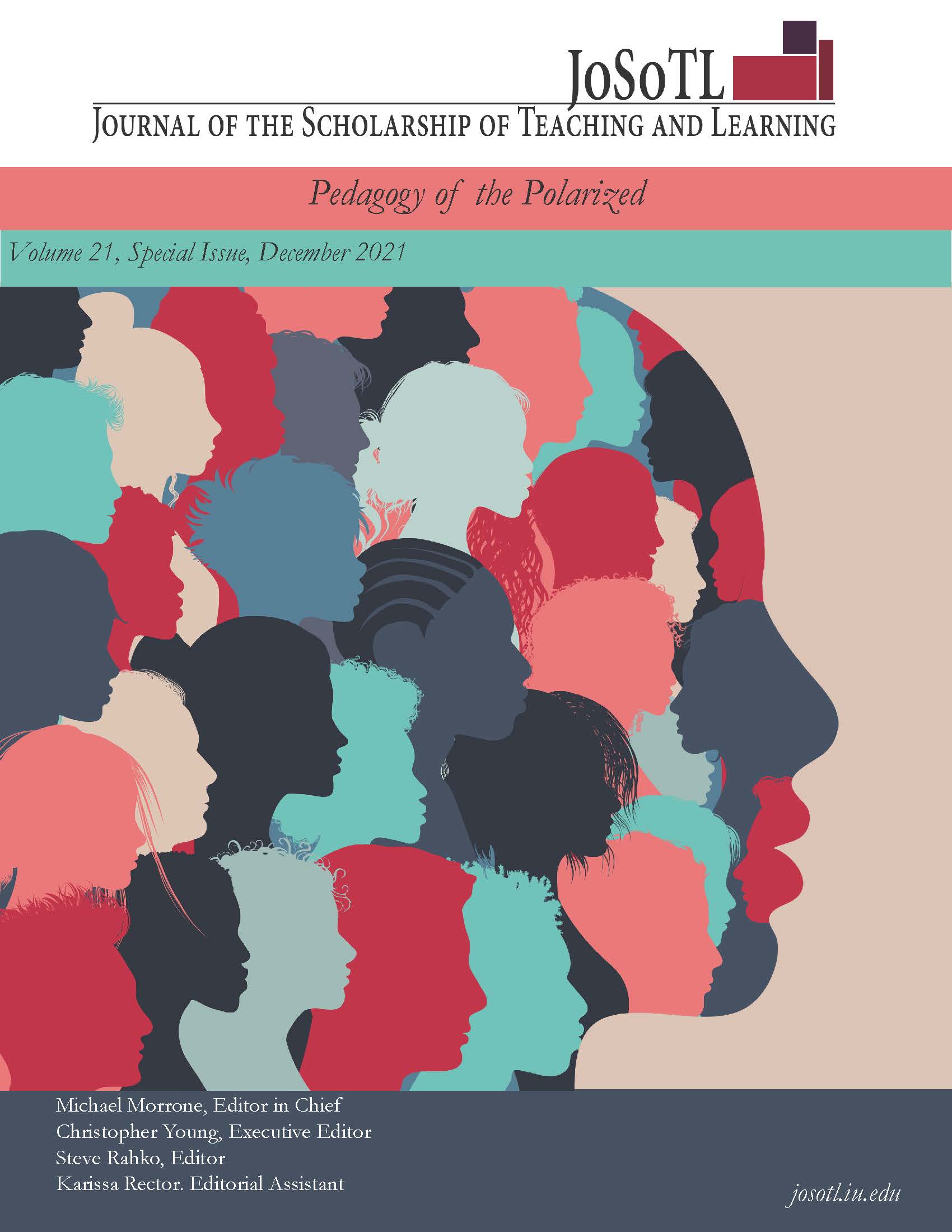Case Study: Partnering Intercultural Communication Students with Campus Co-Cultural Student Groups to Develop Intercultural Competence, Allyship, and Curiosity
Main Article Content
Abstract
The question I analyze in this case study is how might one use civic engagement to foster campus/community relationships in this polarized era? I describe a teaching challenge in intercultural communication. Students have consistently reported that they arrive to this university from rural, majority-White communities where they have not experienced opportunities to communicate with culturally diverse groups. To address this challenge, I developed a semester-long assignment that provides a structured partnership between students in my Intercultural Communication course and campus co-cultural student groups. To assess this assignment’s benefit to the pedagogy surrounding polarization across cultural differences, I qualitatively analyzed themes in students’ reflection papers (N = 128 papers) from the last five sections of the course (2016–2020). Students addressed how these partnerships helped them develop (1) intercultural competence, (2) acceptance or appreciation through allyship, and (3) curiosity about other cultures. I conclude with implications, including how colleagues might use this assignment in other rural, land-grant public university settings.
Downloads
Article Details

This work is licensed under a Creative Commons Attribution 4.0 International License.
- Authors retain copyright and grant the Journal of the Scholarship of Teaching and Learning (JoSoTL) right of first publication with the work simultaneously licensed under a Creative Commons Attribution License, (CC-BY) 4.0 International, allowing others to share the work with proper acknowledgement and citation of the work's authorship and initial publication in the Journal of the Scholarship of Teaching and Learning.
- Authors are able to enter separate, additional contractual agreements for the non-exclusive distribution of the journal's published version of the work (e.g., post it to an institutional repository or publish it in a book), with an acknowledgement of its initial publication in the Journal of the Scholarship of Teaching and Learning.
- In pursuit of manuscripts of the highest quality, multiple opportunities for mentoring, and greater reach and citation of JoSoTL publications, JoSoTL encourages authors to share their drafts to seek feedback from relevant communities unless the manuscript is already under review or in the publication queue after being accepted. In other words, to be eligible for publication in JoSoTL, manuscripts should not be shared publicly (e.g., online), while under review (after being initially submitted, or after being revised and resubmitted for reconsideration), or upon notice of acceptance and before publication. Once published, authors are strongly encouraged to share the published version widely, with an acknowledgement of its initial publication in the Journal of the Scholarship of Teaching and Learning.
